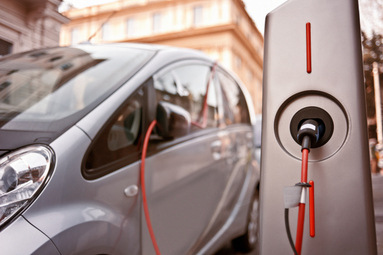|
Alternative energy vehicles are increasing in popularity as stereotypes are debunked. Today's alternative energy vehicles can go as fast and as far (if not farther) than gas-powered vehicles. In addition, the cost for an alternative energy vehicle is declining as technologies advance. If you're considering a new vehicle purchase, you may be wondering how efficient are alternative energy vehicles?
Biodiesel Biodiesel is an animal or vegetable fat based diesel fuel. “Biodiesel is typically made by chemically reacting lipids (e.g. vegetable oil, or animal fat (tallow)) with an alcohol producing fatty acid esters” (Wikipedia). Translated for those of us who aren't chemists, what happens is this: glycerin is separated from the plant or animal fat, leaving 2 products - methyl esters and glycerin. Methyl esters is the chemical name for biodiesel and glycerin is used in a number of ways, including soaps and lotions. Biodiesel is made from renewable resources of plant or animal fats. It has lower emissions compared to traditional diesel. “It is less toxic than table salt and biodegrades as fast as sugar.” For more about how biodiesel is made and the environmental benefits, visit Biodiesel.org. The U.S. Department of Energy states that biodiesel reduces greenhouse gas emissions (B20 reduces carbon dioxide emissions by 15%). Biodiesel is biodegradable, non-toxic and safer to handle. B100 does show up to a 10% decrease in economy and power and is not suitable for use in low temperatures. Additionally, there may be a slight increase in nitrogen oxide emissions. Electricity All-electric vehicles run on electricity alone. Electricity is cheaper than gasoline or diesel fuel. But how efficient are electric vehicles? Electric vehicles convert 59 – 62% of electrical energy to power at the wheels. Internal combustion engines only convert 17-21% of energy to power at the wheels. EVs also emit no pollutants through the tailpipe. Power plants that produce the electricity used may release pollutants; although nuclear, air, wind and solar power production releases no pollutants. The motors in electric cars show stronger acceleration than ICEs and require less maintenance. The concern with electric cars, and all alternative energy vehicles, is that technology is trading one set of problems (vehicle emissions and foreign oil dependence) for another set of problems (environmental damage from sourcing the materials, production pollutants, and long-term risks). Ethanol Ethanol as a fuel has some challenges. Although it would help reduce dependence on foreign oil, it is not an efficient fuel. E85, for example, which contains 51-85% ethanol, produces around 27% less energy per gallon than gasoline. Ethanol is a high-octane fuel, though, so produces increased power and performance. The most popular concerns with ethanol are whether A) Ethanol is using materials that would otherwise have been used for food, and thus contributing to world hunger and B) The environmental costs of producing ethanol outweigh any benefits. Although it may be that none of the alternative energy vehicles are perfect in their efficiency, their environmental impact or the cost to purchase, maintain and operate. It seems that using public transportation, walking or biking are the best ways to stay green, avoid car accidents and save money.
0 Comments
Leave a Reply. |


 RSS Feed
RSS Feed
